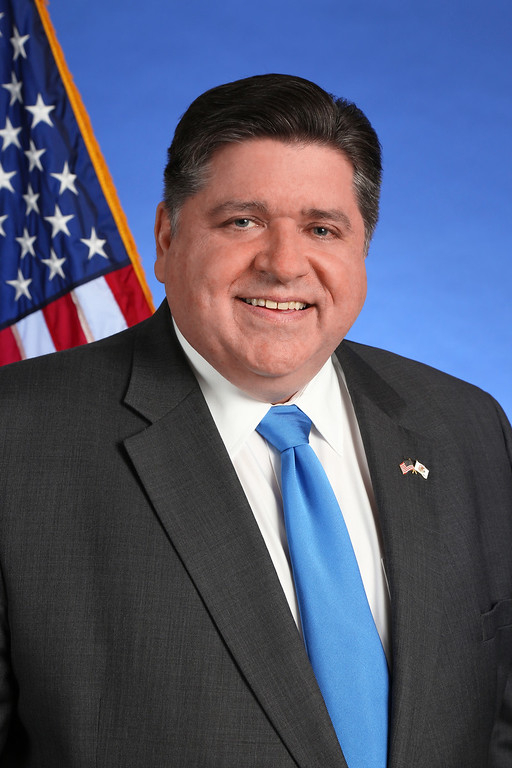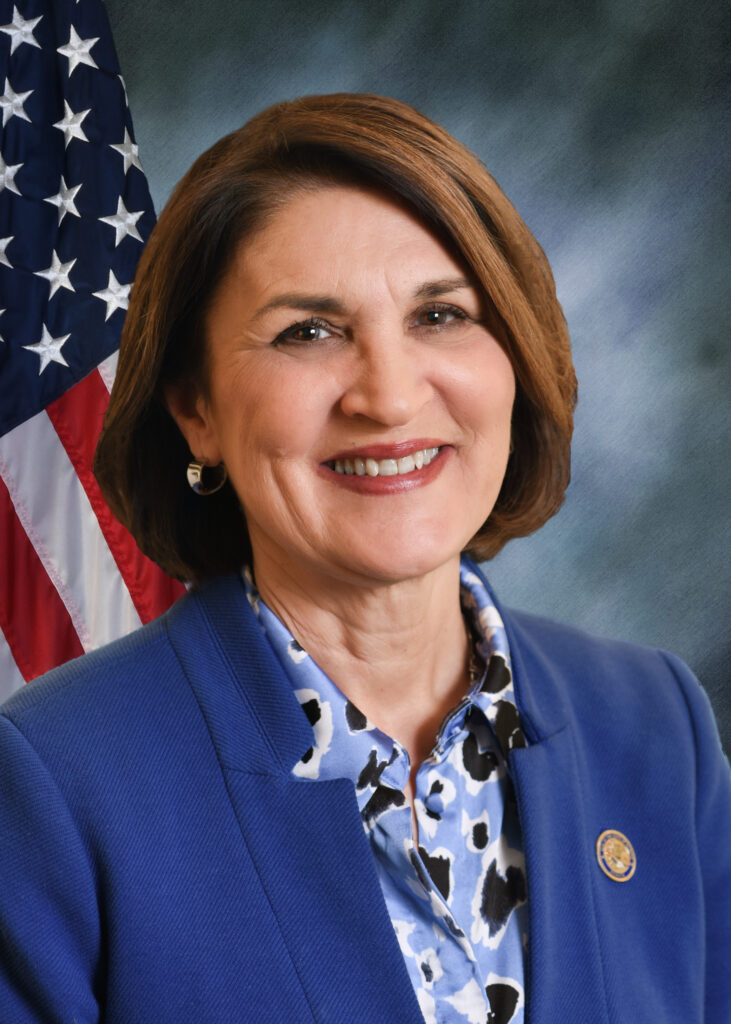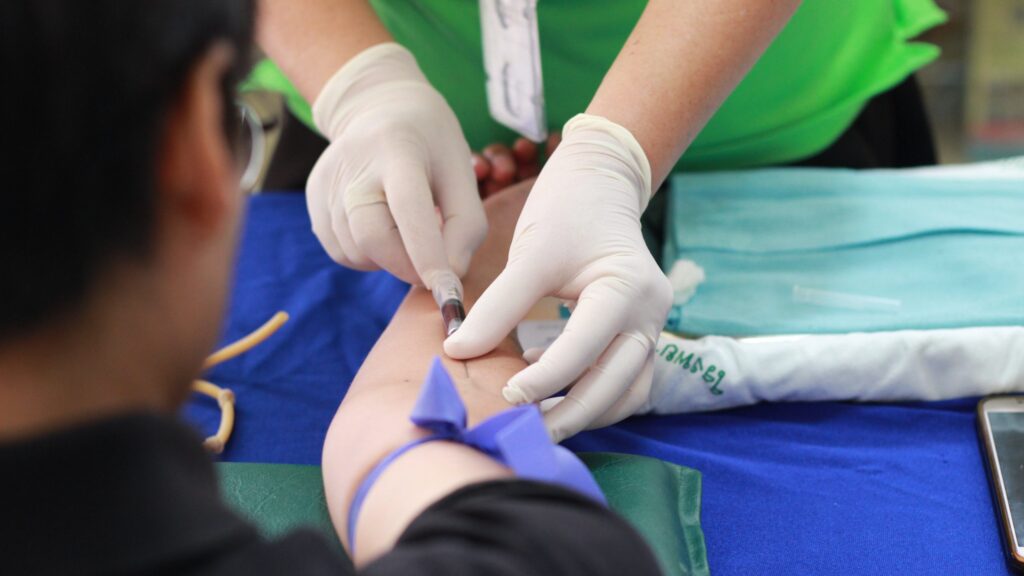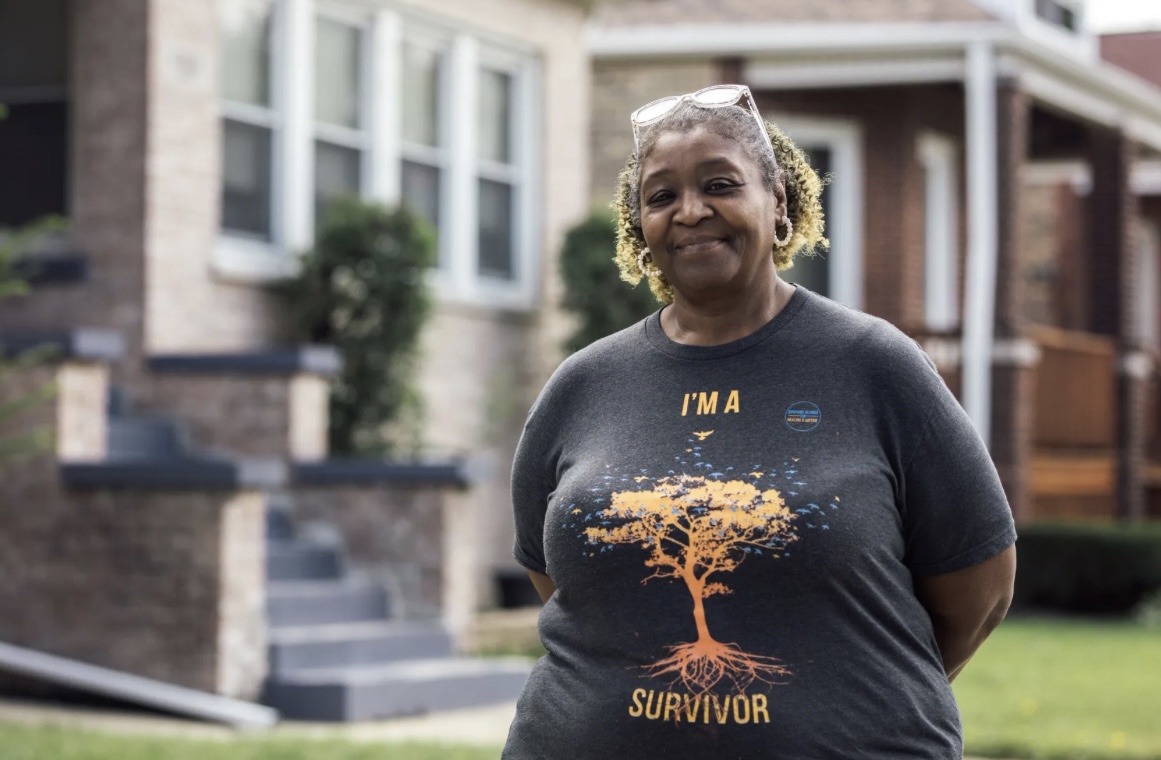Editor’s Notes: In healthcare, equity — the notion that everyone should have a fair opportunity to attain their full health potential irrespective of their social, economic, or demographic circumstances — has long been an intense focus. However, the narrative around health equity is often oversimplified in news coverage, limiting our understanding of the complexities involved. To effectively address this social problem within the Latino undocumented community, IL Latino News is applying Complicating The Narrative strategies to tell more accurate, richer, and complete stories about the responses to chronic illness.
The discussion surrounding chronic illness has a wide range of lenses in order to fully understand the issue, including the impact these illnesses have on different communities and ethnicities. The Latino community in the United States is the most significantly impacted community by chronic illness. Still, the issue itself transforms racial boundaries as each ethnicity suffers greatly from its effects. The significance of its impact on the Latino community emphasizes the desire of that particular community to address the issue on a larger scale.
The impact of chronic illness on the American people is more significant than any other population in the world. Today, 133 million Americans, nearly half the national population, have at least one chronic condition. It is a figure that has increased by 15 million since a decade ago and one that is expected to reach 170 million by the end of this decade. In total, chronic illness accounts for roughly 90% of all healthcare expenditures and is responsible for 7 in 10 deaths in the United States each year.
Seventy-nine million Americans have heart disease, and over the last 15 years, the number of people who have diabetes, a chronic illness, has doubled from roughly 6.5 million to 13.3 million, making each among the leading causes of death in the United States.
According to a study done by the U.S. Department of Health and Human Services Office of Minority Health in 2018, Hispanic adults are 70 percent more likely than non-Hispanic white adults to be diagnosed with diabetes by a physician. In 2017, Hispanics were twice as likely to be hospitalized for treatment of end-stage renal disease related to diabetes as compared to non-Hispanic whites.

(D) IL
In Illinois, controversy has ensued in recent months as many undocumented immigrants who wrestle with chronic conditions have seen a rollback in their health coverage. Coverage for undocumented immigrants in the state was extended in 2020 under the Health Benefits for Immigrant Seniors Program to include all undocumented senior citizens. It was expanded to include coverage for adults 42 years old and older.
However, this extension was paused in July 2023, enrollment for seniors was capped at 16,500, and a copay was added for hospital visits ranging from $100 to $250 following Governor J.B. Pritzker’s June decision to roll back funding for these programs.
This policy shift has resulted in many undocumented immigrants seeking treatment for certain chronic conditions in other capacities like the Illinois Transplant Fund (ITF). ITF is a not-for-profit organization that provides access to life-saving organ transplants and follow-up care for undocumented immigrants with chronic conditions who need organ transplants.
For eligible patients, ITF assistance covers 100% of the monthly health insurance premium for the insurance plan selected by the patient. After three years, ITF works with each transplant recipient family to transition the responsibility for their insurance needs to the patient by reducing ITF support gradually unless a patient remains unable to contribute due to financial hardship.
To date, patients have yet to be removed from ITF support who could not afford their insurance.
“I’ve been looking for options, but with no luck.”
“Adrian,” undocumented immigrant struggling with the high cost of post transplant medicine and care
Adrian is a 35-year-old undocumented immigrant living in Edgewater who received a kidney and pancreas transplant two years ago under the coverage of ITF. His last name is redacted because of his undocumented status.
Adrian suffered from diabetes since he was six years old before he came to the United States. Although he received the necessary care through ITF, he is concerned about the ability to maintain his current treatment plan. “I am worried,” said Adrian in Spanish about losing the post-transplant medications needed to maintain the transplanted organ and necessary follow-up care with doctors. “I’ve been looking for options, but with no luck.”
When Governor Pritzker decided to cut back on funding, undocumented immigrants like Adrian were the ones most affected. Furthermore, this policy decision has generated a deep divide within Illinois politics between those who advocate for a more balanced budget and those who believe there are avenues and a necessity to maintain and even extend coverage for undocumented immigrants.
State Senator Sally Turner is a 44th District Republican who believes Pritzker’s decision was the right one and advocates for the rollback of these programs to reduce the budget deficit since she thinks a balanced budget is essential to maintain fiscal discipline and economic stability throughout the state.

Senator Turner noted that the original bill sponsor of the program claimed it would only cost the state $2 million per year. Then advocates of the program expanded its age bracket and estimated that only 53,700 undocumented immigrants would be able to qualify, and of those, only 33,500 would enroll. In reality, she says, as of February, the program had an enrollment of just under 52,000, 55 percent higher than expected.
Furthermore, in May, it was learned that the program was estimated to grow to 120,500 enrollees through next year. That translated to a fiscal cost of $1.1 billion next year if the program remained unchanged.
“Instead of accepting the reality that the program has gotten out of hand, supporters and advocates wanted to expand the eligibility even further to all adults,” said Senator Turner. “That expansion would have increased the cost, again without any changes, by another $380 million.”

“When people don’t have access to primary and preventive care, it doesn’t mean they don’t get sick,” said Tovia Siegel, Director of the Healthy Illinois Campaign. “It means that, in fact, they often end up with more serious health conditions that could have been treated if they had regular access to care, and (because of this) they often end up in the emergency room. And that’s more costly for the individual and for the healthcare system overall.”
Healthy Illinois is a campaign to make quality, affordable healthcare coverage accessible to all people in Illinois, regardless of immigration status. Siegel and Healthy Illinois argue that the viewpoint put forward by many, such as Senator Turner, does not take into consideration the increase in healthcare and societal costs that come as a result of the lack of existing coverage.
Siegel notes that not having access to healthcare and necessary treatments also impacts the ability of those people to be healthy, to work, to pay taxes, and to be engaged members of their families and communities, thus inflicting an even greater cost on the system at large.
Furthermore, Siegel argues that the state can do more to extend this program with the existing budget. “We think the state of Illinois is not currently maximizing all available federal funding, so there’s definitely work to do there,” said Siegel. “And we believe we can come up with a sustainable approach to make sure that we have coverage for everyone now and also going forward.”
Unfortunately for those like Adrian, who cannot consistently afford the treatments and medications they need to address their chronic conditions, the deadlock amongst lawmakers regarding this issue leaves many without coverage for the time being.
While that conversation remains divided, there are other avenues in the realm of prevention techniques for chronic illnesses that lawmakers and advocates can agree on.
Much of our healthcare discussions and arguments revolve around the treatment option debate and do not include many avenues aimed at preventing the expected increase in chronic disease that the healthcare industry is preparing for.
Some argue that these conversations are not prioritized because of the amount of money made by healthcare companies in treating such conditions.
Prevention Strategy for Chronic Illness

“What I kind of soon realized was that despite the fact that we could provide people with excellent state-of-the-art, highly complex medical care to manage diseases,” said Dr. Joanne Kouba, Professor at Loyola University of Chicago. “Most of the time, that’s what we were doing: managing the disease and trying to prevent further disability, and to help people live a healthy life with their disease. But very often, these diseases were not what we would think of as being cured, or go away completely. And again, I’m talking about things like heart disease, hypertension, cancer, and diabetes, some of the leading causes of death in the United States.”
Dr. Kouba focuses much of her research on developing preventative strategies for chronic illnesses like diabetes and works to develop healthier nutritional patterns amongst young students in Chicago Public Schools. As a young professional, Dr. Kouba began her career working with hospitals such as the NYU Medical Center, Memorial Sloan Kettering Cancer Center, and Bellevue Hospital in New York City, operating in the world of treatment strategies. However, her early experiences shifted her focus from treatment-based care to preventative care.
Working in some of the nation’s top hospitals, Dr. Kouba realized that there needed to be more attention given to developing preventative strategies for these diseases. So she shifted her career focus toward prevention.
Although there exists a lot of division around how to pay for medical care concerning chronic conditions, in speaking about prevention strategies, Tovia Siegel and Senator Turner had similar viewpoints. They shared a similar willingness to address the prevention side of the issue.
“Addressing the growing trend of chronic illness is a shared concern that can bring different groups to the negotiating table,” said Senator Turner. “Policies aimed at promoting preventive healthcare, such as incentivizing healthy lifestyles, encouraging regular check-ups, and reducing the cost of preventative measures, can be areas of agreement. It is true that promoting these types of policies can improve overall health outcomes and reduce the burden on healthcare systems without necessarily coming with expanded governmental programs and costs.”
Senator Turner advocates for prevention strategies as a way to reduce government spending, and Siegel does so similarly, but with an emphasis on providing universal prevention care to curb long-term healthcare costs.
“I think that’s part of why it’s the state’s job, as a public entity and as a government entity, to make sure that people have access to preventive and primary care so that corporations who might profit off of the lack of access to that, can’t do so,” said Siegel. “And so, I think we absolutely see that, and that is part of why the state needs to step up and ensure that people have access to the preventive care they need.”
While Siegel advocates for prevention through a full-access program, she and Senator Turner both see the need for government policy to be directed toward prevention.
According to the Partnership to Fight Chronic Disease, the current economic cost of chronic illness is $1.6 trillion per year and is trending towards ballooning to $6 trillion by 2050. If there is a financial incentive in the healthcare industry, it is in their interest to avoid a focus on preventative care. However, it is undoubtedly in the interest of agencies like Healthy Illinois and the Illinois General Assembly to do so to prevent skyrocketing spending on healthcare and to provide as much healthcare access as possible to those who struggle to afford healthcare and chronic illness treatments.
Cover Photo by Pranidchakan Boonrom.
Editor’s Notes: This story is the first in a series exploring health equity in the Latino community by applying the principles of the Solutions Journalism Network’s Complicating The Narrative strategies.
In the coming week, we will be hosting community conversations with the people at the center of the healthcare debate: patients. We will also spend more time talking to stakeholders from different sides of the social issue.
The Latino News Network (which oversees IL Latino News) is a fellow with SJN: Introducing the Solutions Journalism Network Complicating the Narratives (CTN) 2023 Fellows.
Hugo Balta, Publisher of the Latino News Network is an accredited solutions journalism trainer.




